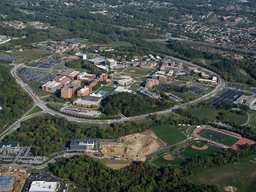JCET & GES Virtual Seminar on IPCC's Report on Climate
A focus on the role of clouds &aerosols in climate change
Location
Online
JCET & GES Virtual Seminar on IPCC's Report on Climate – Online Event
Date & Time
September 15, 2021, 12:00 pm – 1:00 pm
Description
The recent IPCC assessment report, with a focus on the role of clouds and aerosols
Prof. Dr. Johannes Quaas
Theoretical Meteorology, University of Leipzig.
Email: johannes.quaas@uni-leipzig.de
Abstract: The presentation will first provide some background on the IPCC process and summarize the headline conclusions of the report by Working Group I ("The Physical Science Basis") of the IPCC. It will show in some more detail the assessment of the Changing State of the Climate System (Chapter 2). In the second part, it will focus on the role of clouds and aerosols in climate change and present the key conclusions on this aspect. The effective forcing due to aerosols is now revised and better confined, and the cloud feedbacks are now assessed to be clearly of positive sign. The overall effective forcing well explains the observed climate change.
Dr. Johannes Quaas is University Professor for Theoretical Meteorology at Leipzig University (Germany). Previously he worked at three major climate modelling centres in Europe (Laboratoire de Météorologie Dynamique, Paris, France; Met Office Hadley Centre, Exeter, UK; Max Planck Institute for Meteorology, Hamburg, Germany). His expertise is in the role of clouds in climate change, in particular the impact on clouds by anthropogenic aerosols. He works with atmospheric models but also satellite observations. Johannes was Lead author in the 6th Assessment Report by the Intergovernmental Panel on Climate Change.
For more on the 6th IPCC report released in August, look here:
AR6 Climate Change 2021: The Physical Science Basis
The Working Group I contribution to the Sixth Assessment Report addresses the most up-to-date physical understanding of the climate system and climate change, bringing together the latest advances in climate science, and combining multiple lines of evidence from paleoclimate, observations, process understanding, and global and regional climate simulations.
